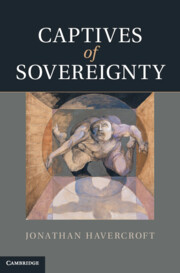Book contents
2 - Sovereignty, judgment, and epistemic skepticism
from Part I
Published online by Cambridge University Press: 07 September 2011
Summary
As we saw in Chapter 1, despite numerous criticisms that the concept of sovereignty continues to face, it persists as an organizing concept in our political language. What I hope to do in this chapter is demonstrate that one of the reasons for its consistent grip on our political language and imagination is its close association with the problem of epistemological skepticism. I will do this by studying how a new program of state sovereignty was first articulated in the political theories of seventeenth-century European political theorists in response to a set of problematizations of the way in which the conduct of individuals was being governed. As James Tully, Richard Tuck and Richard Popkin have observed, one of the triggers of this problematization of government was the widespread distribution of skeptical arguments in sixteenth- and seventeenth-century intellectual circles. This dispersion of skeptical ideas called into question regimes of knowledge that had informed the traditional practices of churches, political apparatuses and universities.
- Type
- Chapter
- Information
- Captives of Sovereignty , pp. 53 - 75Publisher: Cambridge University PressPrint publication year: 2011

